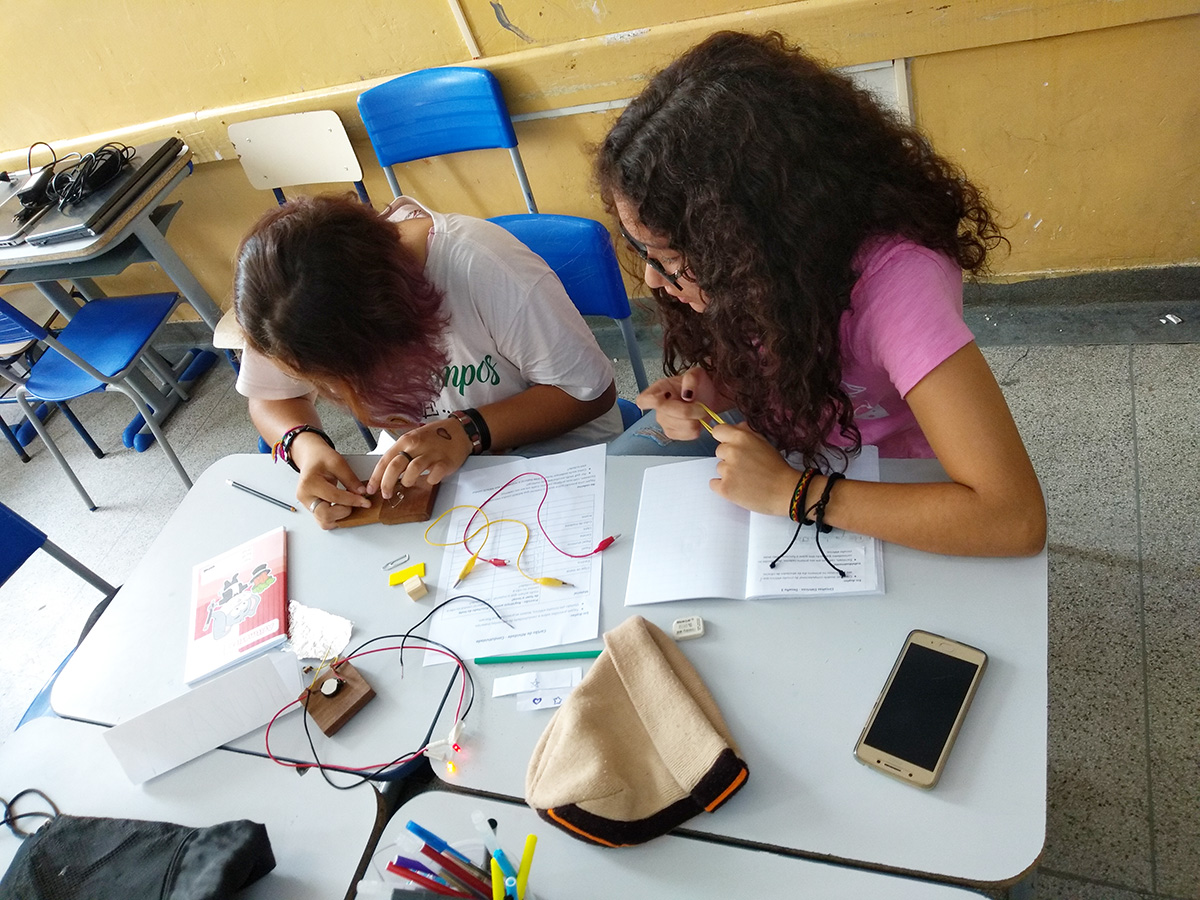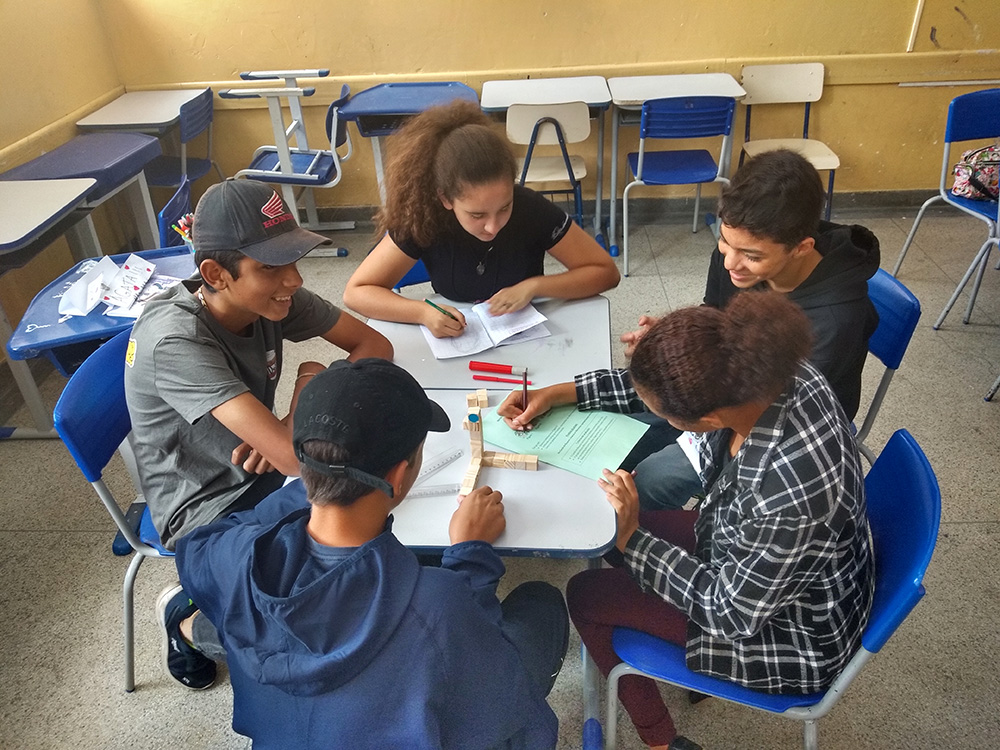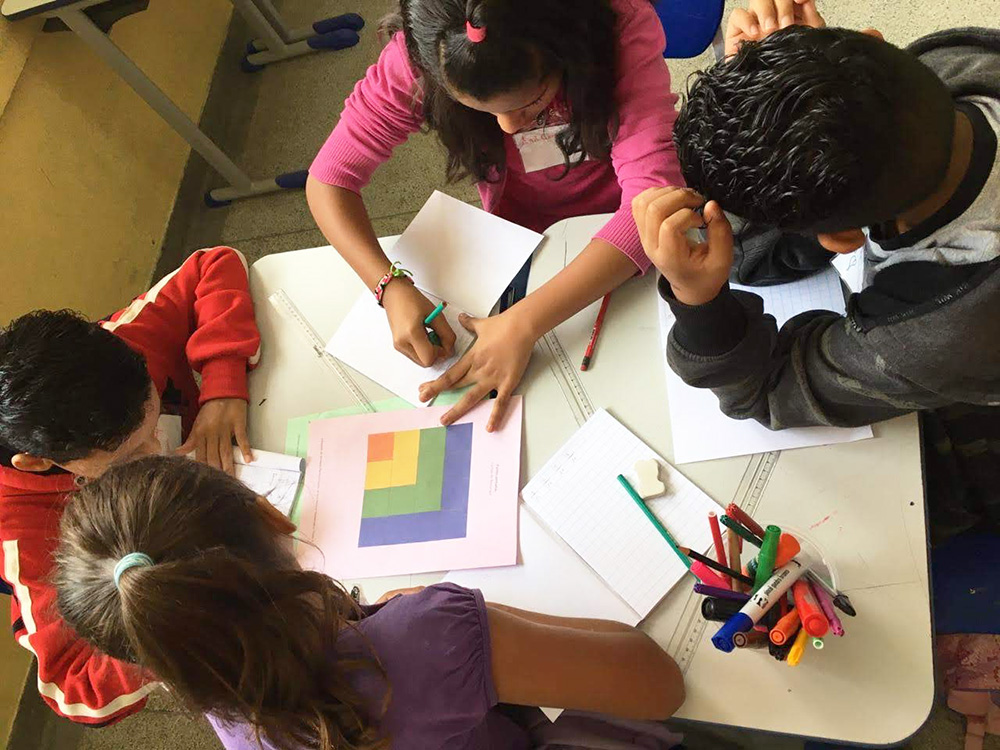Since 2018, Instituto Canoa has been organizing science and math summer camps for students from public schools in São Roque/SP. The camps are two weeks long and are promoted in partnership with the city’s Department of Education and the local non-profit Associação Amigos de Maylaski, a cultural center where different projects are carried out with the community.
The camp aims to strengthen students’ interest in learning mathematics and science through creative, open and engaging activities. Throughout the sessions, students solve problems, develop hypotheses and conjectures, create explanations, and participate in scientific and mathematical discussions.
The proposed activities are designed to promote interaction. Therefore, during the camps students always work collaboratively in heterogeneous groups.
The underlying theory behind the design and development of these activities is Complex Instruction, developed by researchers Elizabeth Cohen and Rachel Lotan from Stanford University.
IMPACT
Improved school performance
In partnership with the Department of Education of São Roque/SP, we assessed the impact of the 2017 summer camp on mathematics learning based on students’ academic performance data. The data included 89 students enrolled in four 6th-grade classes in 2017 at the partner public school, of which 18 students regularly participated in the camp. The results indicate that after participating in the camp, the students showed improved performance in the assessments of the 2018 academic year compared to their classmates.
Mathematics
Final grade of students in the school year

- The group of participating students had lower performance compared to their peers before the camp (2017).
- After the camp, participating students experienced a significant increase in their grades, surpassing the performance of their peers who did not participate in the camp (2018).
- The final impact of the camp on mathematics grades was estimated at 0.33 standard deviations, based on the triple difference estimation technique (treatment vs. control group, current vs. previous scores, mathematics vs. portuguese language scores).
Increased self-efficacy beliefs
In the 2020 edition of the camp, students were asked at the beginning and end of the sessions to what extent they agreed with the statement:“If I work hard, I can learn a lot and do well in math at school”.
This measure relates to self-efficacy beliefs, one of the psychological factors that contribute to student motivation and pertains to confidence in one’s personal ability to organize and perform certain actions. After the camp, a significant increase was observed in the number of students who agreed with this statement.
If I work hard, I can learn a lot and do well in math at school!




